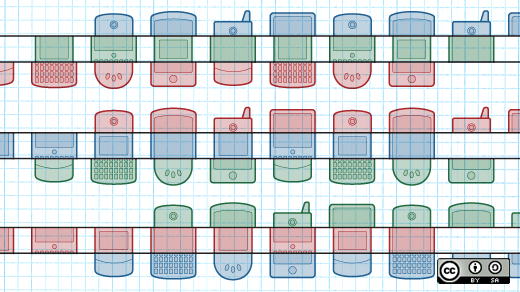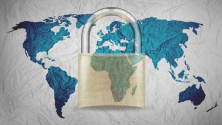Yesterday Peter Eckersly posted at eff.org about the EFF's coming Open Wireless Movement. Here's what he had to say:
If you sometimes find yourself needing an open wireless network in order to check your email from a car, a street corner, or a park, you may have noticed that they're getting harder to find.
Stories like the one over the weekend about a bunch of police breaking down an innocent man's door because he happened to leave his network open, as well as general fears about slow networks and online privacy, are convincing many people to password-lock their WiFi routers.
The gradual disappearance of open wireless networks is a tragedy of the commons, with a confusing twist of privacy and security debate. This essay explains why the progressive locking of wireless networks is harmful — for convenience, for privacy and for efficient use of the electromagnetic spectrum.
We will need a political and technological "Open Wireless Movement" to reverse the degradation of this indispensable component of the Internet's infrastructure. Part of the task will simply be reminding people that opening their WiFi is the socially responsible thing to do, and explaining that individuals who choose to do so can enjoy the same legal protections against liability as any other Internet access provider. Individuals, including Bruce Schneier and Cory Doctorow, have laid some of the groundwork. It's time to spead the message far and wide.
But an Open Wireless Movement will also need to do technical work: we need to build new technologies to ensure that people have an easy way to share a portion of their bandwidth without affecting the performance of their own network connections while at the same time ensuring that there is absolutely no privacy downside to running an open wireless network.
The wireless world we ought to live in
Most of us have had the experience of tremendous inconvenience because of a lack of Internet access. Being lost in a strange place with no way to find a map; having an urgent email to send with no way to do so; trying to meet a friend with no way to contact them. Even if we have data plans for our mobile phones, we've probably had these experience in cities or countries where our phones don't have coverage or don't have coverage for less-than-extortionate prices. We may even experience this problem at home, when our Internet connection dies while we urgently need to use it.
Finding yourself in one of these binds is a bit like finding yourself parched and thirsty while everyone around you is sipping from nice tall glasses of iced water, or finding yourself cold and drenched in a rain storm because nobody will let you under their umbrella. At those moments when you are lost, or missing a deadline, or failing to meet your friend, it is almost always true that Internet data links are traveling through your body in the form of electromagnetic wireless signals — it's just that people have chosen to lock those networks so that you can't make use of them.
A tragedy of the commons
When people turn on WEP or WPA encryption for their networks deliberately, there are two common reasons: a desire to prevent their neighbors from "free riding" on their connections; and a fear that unencrypted WiFi is a security or privacy risk. Both of those reasons have a degree of legitimacy, but neither of them changes the fact that we would be better off if there were more open networks. Also, both of these problems could be solved without password locking our networks. What we need, instead, is to develop and deploy better WiFi protocols.
Read the rest at:
https://www.eff.org/deeplinks/2011/04/open-wireless-movement







3 Comments